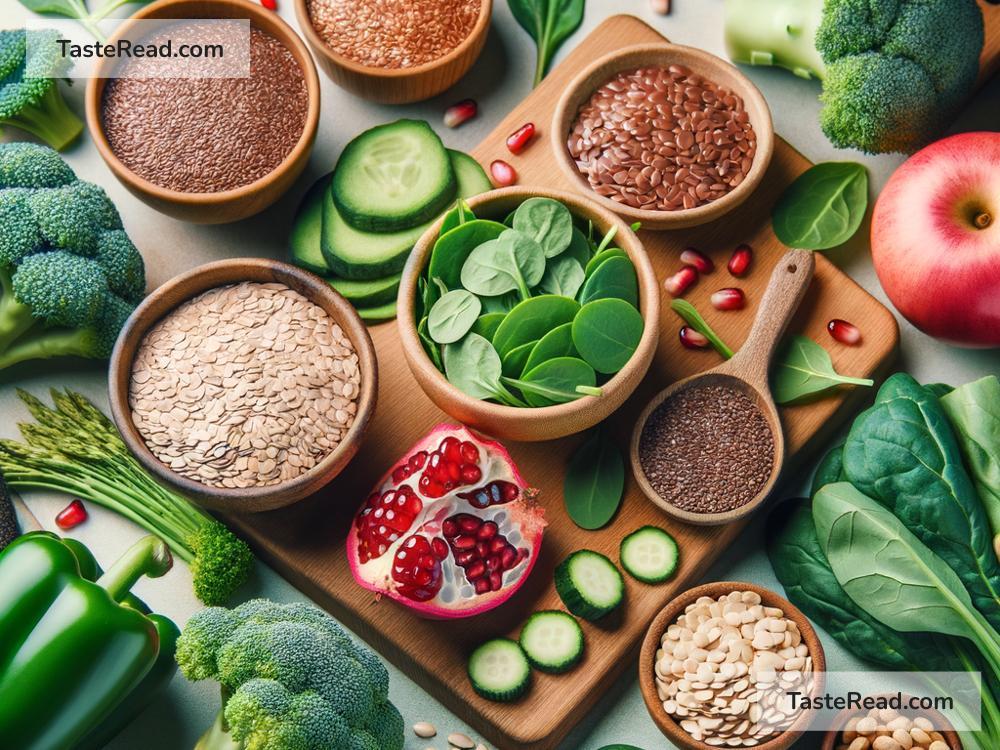Foods That Promote Balanced Estrogen Levels
Estrogen is a key hormone in our bodies, particularly for women, but men have small amounts too. It plays a vital role in everything from reproductive health to maintaining strong bones and healthy skin. However, imbalanced estrogen levels can lead to problems such as irregular periods, mood swings, weight gain, and even long-term health issues like osteoporosis or certain cancers.
Fortunately, eating the right foods can help promote balanced estrogen levels. If you’re looking for ways to naturally support your hormonal health, let’s explore some foods that can keep your estrogen in check.
What Is Estrogen and Why Does Balance Matter?
Before we dive into specific foods, it’s helpful to understand estrogen and why balancing it is essential. Estrogen is produced primarily in the ovaries but also in smaller amounts in fat tissue and adrenal glands. It helps regulate your menstrual cycle, supports pregnancy, and affects your mood, skin, brain, and bones.
When estrogen levels are too high, it can lead to symptoms like bloating, fatigue, and heavy periods. On the other hand, low estrogen might cause issues like hot flashes, dry skin, and weaker bones. Eating the right foods won’t necessarily fix severe hormone imbalances, but it can contribute to overall hormonal health and help support your body’s natural regulation processes.
Foods That Promote Balanced Estrogen Levels
1. Flaxseeds
Flaxseeds are tiny but mighty when it comes to hormone health. They contain lignans, a type of phytoestrogen, which is a plant-based compound that mimics estrogen in the body. These lignans can both reduce excess estrogen and improve low estrogen levels by acting as a balancing agent.
You can sprinkle ground flaxseeds on your cereal, blend them into smoothies, or even bake them into muffins. Aim for 1-2 tablespoons a day for a hormonal health boost.
2. Cruciferous Vegetables (Broccoli, Kale, Brussels Sprouts, etc.)
Cruciferous vegetables are excellent for promoting estrogen balance because they contain special compounds called indole-3-carbinol (I3C) and diindolylmethane (DIM). These compounds help your liver process and eliminate excess estrogen from the body.
This helps prevent estrogen dominance, which can cause PMS, bloating, and even increase the risk of hormone-sensitive cancers like breast cancer. Add broccoli to your stir-fry, roast some Brussels sprouts, or enjoy kale in a salad or smoothie to benefit from their hormone-balancing properties.
3. Soy Products
Soy foods, like tofu, edamame, and tempeh, are another source of phytoestrogens. Consuming soy in moderation can help balance estrogen levels, especially if they’re low. However, the key is moderation—eating too much can sometimes lead to conflicting effects, especially for people prone to estrogen dominance.
Choose fermented soy products (like tempeh and miso) or whole soybeans for best results. These tend to have more balanced phytoestrogens compared to heavily processed soy products like soy protein isolates.
4. Healthy Fats (Avocado, Nuts, Seeds, Olive Oil)
Your body needs fat to produce hormones, including estrogen. Healthy fats like avocados, walnuts, chia seeds, and olive oil contain the nutrients your body needs for optimal hormone production.
These fats are also anti-inflammatory, which supports overall hormone balance, since inflammation can throw off your body’s ability to regulate estrogen. Replace less healthy fats, like processed vegetable oils, with whole food sources like nuts and seeds for long-term health benefits.
5. Fermented Foods (Sauerkraut, Kimchi, Yogurt)
A healthy gut is key to hormonal balance, including estrogen. Fermented foods like sauerkraut, kimchi, kefir, and yogurt contain probiotics, which support gut health by helping your body break down and eliminate excess estrogen.
Eating fermented foods regularly may improve digestion and hormonal balance over time. Look for options that have live, active cultures and minimal added sugar to maximize their benefits.
6. Fruits Rich in Antioxidants (Berries, Citrus, Apples)
Fruits like blueberries, oranges, and apples are rich in antioxidants, which help reduce inflammation and improve your body’s ability to regulate hormones, including estrogen. Citrus fruits, in particular, contain compounds that can help flush out harmful excess estrogen, making them a great addition to your diet.
Try adding berries to your breakfast, snacking on oranges between meals, or enjoying apple slices with almond butter for a healthy boost.
7. Whole Grains (Quinoa, Brown Rice, Oats)
Whole grains are rich in fiber, which plays a key role in removing excess estrogen from the body. Fiber binds to estrogen in the digestive system and helps excrete it, preventing estrogen dominance from developing.
Swap out refined grains like white bread or white rice for options like quinoa, oats, and brown rice. These whole grains also offer more nutrients and energy for your overall health.
Lifestyle Tips to Support Estrogen Balance
In addition to eating these hormone-friendly foods, consider other lifestyle tweaks for better hormonal health:
- Stay Active: Exercise helps regulate estrogen and other hormones.
- Manage Stress: Stress can throw your hormones out of balance, so practice relaxation techniques like meditation or yoga.
- Limit Alcohol and Caffeine: Too much alcohol or caffeine can affect estrogen metabolism and balance.
Final Thoughts
Balanced estrogen levels are crucial for feeling your best, and the foods you eat play an important role in sustaining hormonal health. By including flaxseeds, cruciferous vegetables, soy, healthy fats, fermented foods, antioxidant-rich fruits, and whole grains in your diet, you can give your body the tools it needs to naturally regulate estrogen levels.
Remember, it’s about creating consistency in your overall lifestyle. A balanced diet, combined with exercise and stress management, can make a major difference in your hormonal health over time.
So, start small—sprinkle some flaxseeds in your morning smoothie or add an extra serving of broccoli to dinner tonight—and take steps toward supporting your body’s health and well-being.


